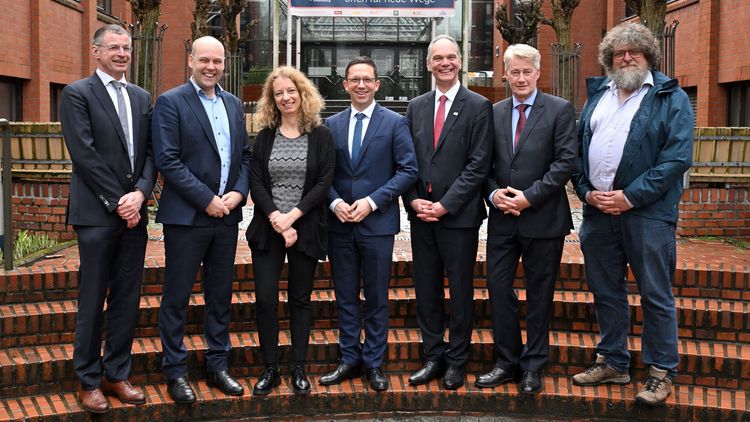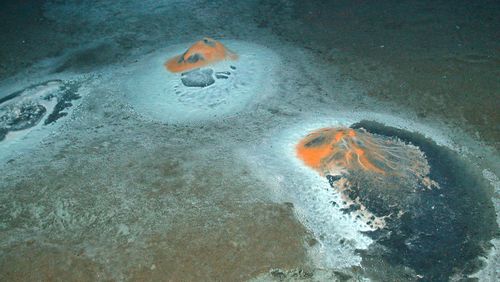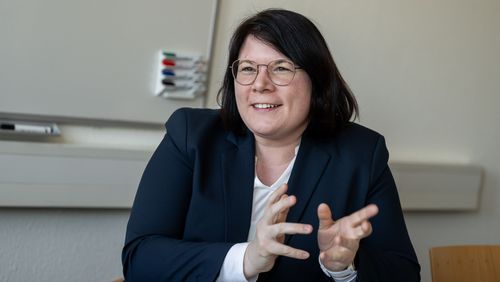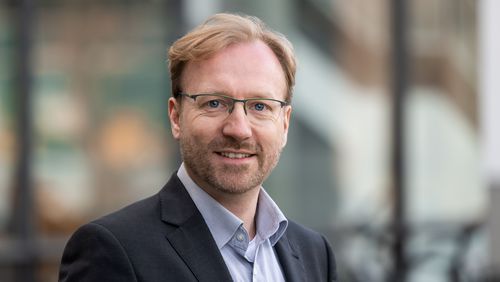During two visits to the university, the Minister of Science in Lower Saxony, Falko Mohrs, learned about the three Clusters of Excellence initiatives and the aims of the scientists in the fields of marine research, hearing research and animal navigation research.
The University of Oldenburg will apply for three Clusters of Excellence in the current round of the Excellence Strategy of the German federal and state governments. On Wednesday, 3 April, the Minister of Science in Lower Saxony, Falko Mohrs, visited the researchers of the new NaviSense initiative, which focuses on the navigational abilities of animals. On 22 March, the Minister had already gained information about the two renewal proposals to be submitted by the Oldenburg hearing researchers (Cluster of Excellence Hearing4All) and the marine researchers (Cluster of Excellence Ocean Floor).
„The two renewal proposals and the new NaviSense cluster initiative illustrate the high relevance of research in Oldenburg,” said Mohrs during the visit. NaviSense unites a team of world-leading scientists from diverse fields including physics, chemistry, biology, ecology, computer science, and social sciences. Together, they explore the senses and mechanisms that enable animals to navigate over long distances, he added. „The knowledge gained from this research can signifcantly contribute to current social issues such as biodiversity, quantum sensor technology, and GPS-independent navigation.
Further development of cutting-edge research
For several years, researchers from the University of Oldenburg have successfully contributed to the Ocean Floor Cluster of Excellence at the University of Bremen. „The project focuses on the largely unexplored seabed. By combining the expertise of both universities in a joint cluster initiative, they aim to gradually decipher the unknown and inaccessible areas in the future," Mohrs emphasises.
The strength of hearing research in Oldenburg lies in its consistent interdisciplinary approach, combining engineering, natural sciences, life sciences, and linguistics, with a strong focus on patients, Mohrs stresses. "The Hearing4All Cluster of Excellence and the colloborative research centre Hearing Acoustics provide a solid foundation for developing innovative hearing solutions for all individuals. Our aim is to secure and strengthen this foundation in the next round of the Excellence Strategy."
"We have strengthened and developed our research over the past decade, with a focus on hearing, marine science, and animal navigation. This work has gained national and international recognition," says University President Prof. Dr Ralph Bruder. "It is further proof of our research strength that the University of Oldenburg will submit three applications for Clusters of Excellence."
How do animals navigate?
The researchers in the three planned clusters are focusing on distinct topics. The NaviSense team aims to understand long-distance animal navigation and apply the knowledge to new technical developments. They are studying the physical, biochemical, and physiological processes that underlie animal navigation, as well as the senses involved. As birds' magnetic sense is believed to be based on quantum mechanics, the focus is on quantum phenomena. The team aims to draw conclusions for animal ecology and conservation from these findings. Additionally, they aim to develop models and algorithms for technical systems inspired by animal navigation, such as sensors or autonomous devices.
What role does the seabed play in the overall ecosystem?
Since 2019, researchers from Oldenburg have been partners in the Cluster of Excellence Ocean Floor (The Ocean Floor - Earth's Uncharted Interface) at the University of Bremen. The universities of Oldenburg and Bremen are jointly applying for the continuation of the project. The project focuses on the seabed, which is the largest habitat on Earth, but also one of the least researched. The aim of the joint application is to understand the role of the seabed in elemental cycles and biodiversity under changing climatic conditions. Researchers will utilize the unique infrastructure and experience of both universities and their partners, along with new modelling and data science approaches, to estimate future environmental changes based on the geological past, biogeochemistry, and ecology of the present. This will provide a scientific basis for the protection and sustainable use of the oceans.
How can people with hearing impairments be better cared for?
The Cluster of Excellence Hearing4all (Hearing for All: Medicine, Basic Research and Technical Solutions for Personalised Hearing Support) is applying for a further funding period after two successful applications. The University of Oldenburg, Hannover Medical School and the University of Hanover are involved. The partners aim to develop innovative solutions for the care of people with hearing impairments and thus improve the quality of life of those affected in the long term. The research team has made considerable progress over the past ten years. For example, it has been able to optimise the sound quality and speech intelligibility of hearing aids, integrate artificial intelligence (AI) into hearing aids and further develop cochlear implants. In the next funding phase, the researchers want to develop data-driven solutions for hearing aids, investigate the genetic causes of hearing loss with a view to new treatment options and shed light on social-communicative factors in hearing comprehension, among other things.
Strategy for more cutting-edge university research
The federal and state governments’ Excellence Strategy strengthens top-level university research. Funding is provided for clusters of excellence in specific research fields and for universities of excellence as strategic support for outstanding university locations. From 2026, up to 70 clusters of excellence will be funded with 539 million euros per year. The Federal Government will contribute 75 percent and the Länder 25 percent. The Excellence Strategy builds on its predecessor, the Excellence Initiative, which ran from 2007 to 2017.




